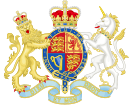- Civil Justice Council
-

The Civil Justice Council is a UK non-departmental public body that advises the Lord Chancellor on civil justice and civil procedure in England and Wales. It was established in 1998 under section 6 of the Civil Procedure Act 1997 and is sponsored by the Ministry of Justice.
Contents
Composition
The Council must include:[1]
- Members of the judiciary;
- Members of the legal professions;
- Civil servants concerned with the administration of the courts;
- Persons experienced in consumer affairs;
- Persons experienced in lay advice; and
- Representatives of particular kinds of litigants, for example, businesses or employees.
As of 2007, it is composed of:[2]
- Chair: Master of the Rolls and Head of Civil Justice, Sir Anthony Clarke QC;
- Deputy chair: Lord Justice Dyson
- 24 members;
- Ex officio members:
- Deputy Head of Civil Justice;
- Chair of the Judicial Studies Board.
Functions
The Council's functions are to:[3]
- Keep the civil justice system under review;
- Consider how to make the civil justice system more accessible, fair and efficient;
- Advise the Lord Chancellor and the judiciary on the development of the civil justice system;
- Refer proposals for changes in the civil justice system to the Lord Chancellor and the Civil Procedure Rules Committee; and
- Make proposals for research.
Subcommittees include:[2]
- Access to justice committee;
- Costs committee;
- Alternative Dispute Resolution committee;
- Experts committee.
In February 2008, the Ministry of Justice announced a study of the work of the Council to:[4]
- Review the role and performance of the Civil Justice Council and make recommendations;
- Evaluate the continuing need for body to perform the role and functions of the Council 1997 Act;
- Review whether a non-departmental body remains the most appropriate institution;
- Assess the past effectiveness of the Council; and
- Consider ways in which the Council could be made more effective.
References
- ^ Civil Procedure Act 1997, s.6(2)
- ^ a b "Civil Justice Council - Annual Report 2006". Civil Justice Council. 2007. http://www.civiljusticecouncil.gov.uk/files/cjc_annual_report_2006web.pdf. Retrieved 2008-03-20.
- ^ Civil Procedure Act 1997, s.6(3)
- ^ "Civil Justice Council review". Ministry of Justice. 2008. http://www.justice.gov.uk/reviews/civil-justice-intro.htm. Retrieved 2008-03-20.
External links
- "Civil Justice Council". http://www.civiljusticecouncil.gov.uk/index.htm. Retrieved 2008-03-20.
Ministry of Justice of the United Kingdom Headquarters: 102 Petty France, Westminster Ministers Executive agencies HM Courts and Tribunals Service · National Offender Management Service (HM Prison Service · National Probation Service) · The National Archives · Office of the Public GuardianNon-departmental public bodies Administrative Justice and Tribunals Council · 4 Boundary Commissions · Civil Justice Council · Criminal Injuries Compensation Authority · Employment Appeal Tribunal · Employment Tribunal · Information Commissioner's Office · Judicial Appointments Commission · Law Commission · Legal Services Commission · Mental Health Review Tribunal · Sentencing Council · Youth Justice BoardFormer Agencies Office of the Judicial Committee of the Privy Council · Privy Council Office Categories:- Ministry of Justice (United Kingdom)
- Organizations established in 1998
- Legal organisations in England and Wales
- Civil procedure
- Non-departmental public bodies of the United Kingdom government
- 1998 establishments in the United Kingdom
Wikimedia Foundation. 2010.

